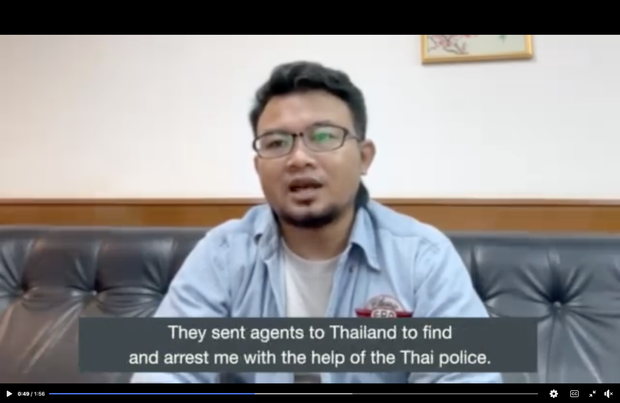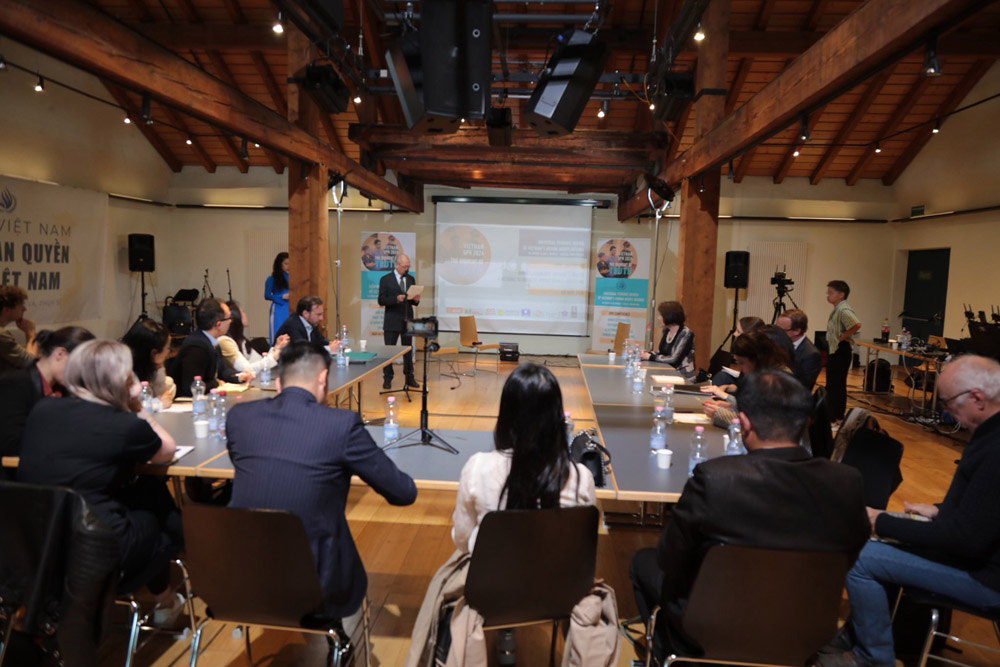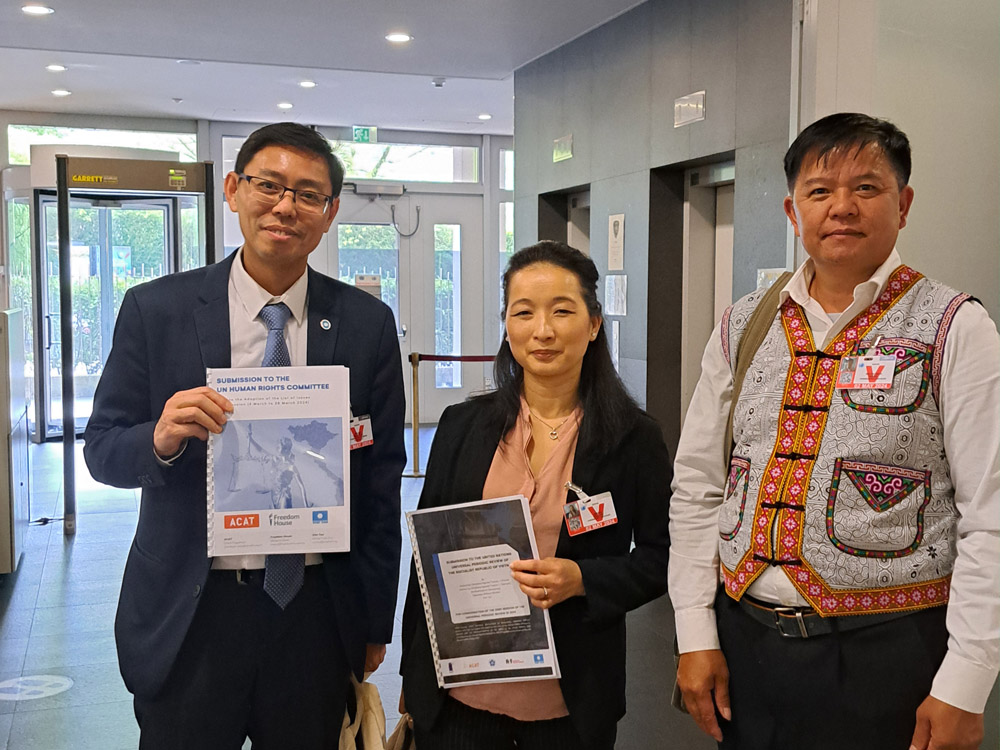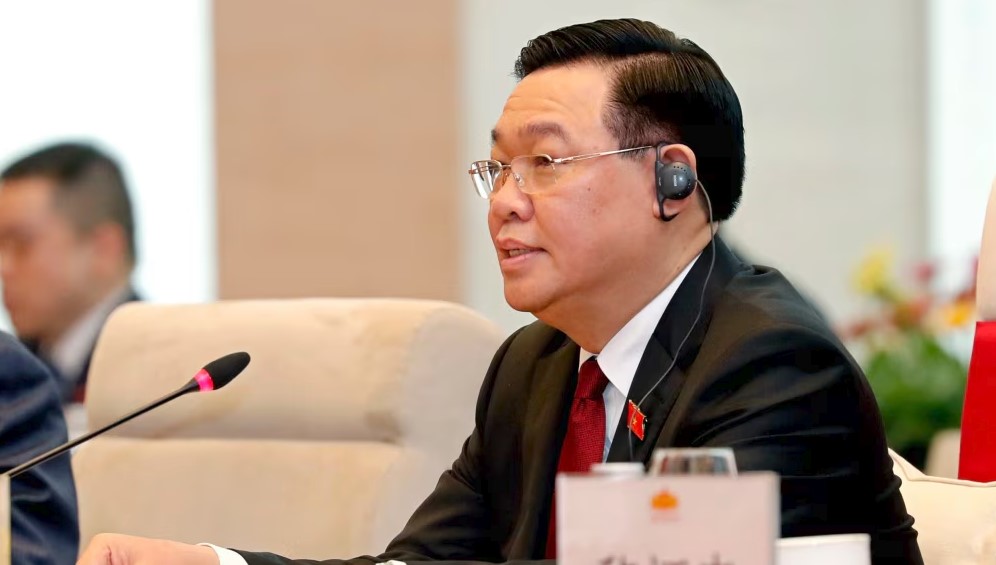Last week, during the official visit of Australian Parliamentary delegation to Vietnam, Mr. Luke Simpkins of the Australian Liberal Party met with democracy activists as well as relatives of imprisoned activists to learn more about Vietnam’s violation of human rights and lack of freedom. Radio New Horizon was able to interview Mr. Luke Simpkins about his Vietnam trip.
The following is the entire interview of Mr. Luke Simpkins, Member of Parliament, by Diem Chau of Radio New Horizon.
Diem Chau – Radio New Horizon (RNH): I understand that this is your first time coming to Vietnam! Is that right?
Mr. Luke Simpkins (LS): Yes it is, my first time and I was very happy to visit there.
RNH: So what was your first impression Mr. Simpkins, when you came into the country?
LS: Well, there are a lot of people. There was a lot of traffic, a lot of people on small motor bikes. And, yes, chaotic, I think, that would be the right word, frankly!
RNH: Yes I understand that you were there as a part of the Australian delegation, is that right?
LS: Yes, I’m the deputy leader of the bilateral delegation to Vietnam, and also going on for a conference in Laos after that.
RNH: Apart from your formal duty, Mr. Simpkins, I understand that you also took time out to meet other people, family members of those who have been imprisoned by the Vietnamese government for peaceful activism. What were these conversations about and perhaps your impression of these stories?
LS: Well, I was fortune enough to meet a couple of human right lawyers, as well as members of churches in Vietnam.
RNH: Is it possible for you to mention their names?
LS: Yes, in Saigon, I met Mr. Le Tran Luat, a lawyer, and I also met Pastor Nguyen Hong Quang, and Pastor Daniel Phan. Forgive my pronunciation; I’m not very good at this.
RNH: That’s recognizable!
LS: OK, very good. In Saigon, we talked about what was happening, the difficulties that people have in practicing their religion, and also wanting to speak out for greater freedoms. I was certainly disappointed to hear that it isn’t easy for those that don’t want to just go along with the government of Vietnam.

RNH: Obviously it was not your first time hearing these stories because I understand that on the 15 of September last year, which marked the International Day of Freedom, you gave a speech in the Australian Parliament regarding those repressions, now that you have your first hand experience in Vietnam itself, have your opinions changed in anyway, or have you become more determined to, perhaps, pressure the Vietnamese government to respect basic human rights?
LS: Well, as you’ve already known that I have spoken in the past in the Australian Parliament on greater freedoms; freedom of speech and freedom of religion in Vietnam. And, after meeting also in Hanoi with relatives of Ngo Quynh, Vu Hung and Nguyen Xuan Nghia, as well as human rights lawyer, Mr. Le Quoc Quan, I guaranteed to those people that, I would continue to make speeches in Australian Parliament about the conditions in Vietnam, and the need for a greater freedom for speech, and greater religious freedom and practice and to speak out. Specifically, I did promise the relatives of those three men that are in prison, in the North of Vietnam, that I would ask questions to the Vietnamese government about their treatment. And so on last Thursday, the 8th of January, I spoke to Mr. Dao Trong Thi, who is the Chairman of the National Assembly Committee for Culture, Education and Youth Affairs, and I asked about those three men. What I said to Mr. Thi was that the Vietnamese people in Australia had approached me and said that they were very much concerned about why these men were in custody, why they were in goal, and Australia would hope that they will be released. The Vietnamese government should at least give the relatives of these men, the opportunity to meet with them. I asked Mr. Thi that question, as I said, on the 8th of January.
RNH: And his response?
LS: What Mr. Thi said was that, with further information, which the Australian Embassy has provided, he would ask the relevant authorities to give my request favourable consideration. Obviously, I would have liked to have heard from him that the family would be allowed to visit their father, or husband in case it was. It is important that we continue to take these opportunities to make sure that the Vietnamese government knows that we in Australia care about human rights; the freedom to practice religion, and that we’ll continue to remind them that these things are important, and they should make those changes in Vietnam.
RNH: As you just mention that it is important to continue to pressure the Vietnamese government in doing so. I understand that there is an annual Human Rights Dialogue between Australia and Vietnam, would you think that now that you’ve had your first hand experience to perhaps, discuss these issues on the up coming dialogue, in particular the issue of freedom of expression and freedom of media?
LS: Well, I raised these matters with our Ambassador and his staffs in Vietnam, and they assured me that they speak regularly with the Vietnamese government about those three men that I mentioned, and the others both in the North and the South of Vietnam that are in custody, in prison. So I’m pretty confident that the Australian government is talking to the Vietnamese government about these matters. But we as Members of Parliament, and within our communities in Australia, will continue to take all the opportunities as possible to remind the government of Vietnam that we do care about human rights, we care about freedom of speech, freedom of religion and the better future for the people of Vietnam.
RNH: It’s really great to see an Australian MP who not only focuses on local issue, but also, which I understand, that you further focuses on other countries. So as a Vietnamese, I really appreciate what you are doing. Is there anything else you would like to share with our listeners before leaving the program, Mr. Simpkins?
LS: I just want to say that I certainly enjoy greatly the visit to Vietnam, I found the people very friendly, and it was a great experience. But my view is that the country has been held back by a system of government that does not give the people freedom, the full freedom that we enjoy in Australia. And we should always keep our eyes on that fact that Vietnam is a great country with great people that could be better with the better system of government. That’s my view. And that was a great visit, and I will continue to fight for the cause of freedom.
RNH: I’m sure your view is also commonly shared by a huge amount of people out there, not just the Vietnamese alone. So thank you for your time tonight. I hope you have a safe trip home.
LS: Thank you and I’m looking forward to be back to Australia soon and so I can speak directly to some of my Vietnamese friends back in Perth to inform them of how all those meetings went.
RNH: Thank you very much Mr. Simpkins. Good night.





